Venus retrograde motion
Share
Retrograde motion, what is it?
In the dictionary of astronomy and astrology, we often hear this strange term “retro-grade”. To paraphrase the words of the music of the cosmic orchestra, it is the tempo of “lento-adagio”, which in Italian means slowly, calmly. Retrograde motion is the alleged movement of a planet in the opposite direction (back, backwards) than other bodies in its system, when observed from a certain observation point (Earth). During the retrograde motion of a planet, we observe on Earth the slowing down of the planet’s rectilinear motion, stopping and returning back along the path it has taken, again slowing down the tempo and returning to its usual direction and pace of movement.
On Earth, observing retrograde planets in the sky is a common and regularly calculated phenomenon. If we lived on the Sun, all the planets would revolve around us and we would not see any of their retrograde movement. The planets have different orbital shapes and do not move at the same speed. Therefore, when passing on different “treadmills”, when viewed from Earth, it seems that the planet is moving back and forth, creating a zigzag or looped impression of the path of movement. In reality, the planets never stop revolving around the Sun, so retrograde movement is a kind of “optical illusion of the point of view”. Nevertheless, this does not diminish the importance of this phenomenon in astrology. Changes in the tempo of cosmic music reveal a change in the influence of the energies of retrograde planets.
Venus
Venus is the second planet from the Sun in the Solar System. It is similar in size to Earth, and is sometimes called Earth's sister. Apart from the Moon, it is the brightest object in the night sky. Its dense atmosphere (clouds) reflects about 75% of the sunlight that falls on it.
Venus takes about 225 Earth days to orbit the Sun, but its day – that is, one rotation on its axis – lasts as long as 243 Earth days. This means that its day is longer than a year! It is the slowest-rotating planet in the Solar System. It also rotates in the opposite direction to the other planets in the Solar System. It is believed that Venus may have been hit by a celestial body similar in size, which changed the direction and speed of its rotation.
It is the only planet named after a female goddess. Perhaps that is why the International Astronomical Union tried to correct this inequality by naming most of the places on the surface of Venus after women. By the way, as many as 40 of them are named after Lithuanian mythological creatures and women (for example, the craters of Venus are named after Birutė, Daina, Danutė, Gražina, Janina, Nomeda, Ugnė, Virgo and Živilė; the mountains are named after Aleksotė, Eglė, Milda and Nijolė; the hill Jūratė, Neringa district, Lados žemė, Vakarinė valley).
Depending on the phase of its cycle, Venus can appear in the morning before sunrise or in the evening after sunset, but we will never see it in the center of the night sky. Therefore, in many cultures it was called by two names, although it is associated with one deity. In Lithuania, Venus is considered the daughters of the Sun in the Morning and Evening, most associated with Milda. The Sumerians associated this planet with the goddess Inanna, whom the Babylonians later called Ishtar. She played a dual role - she was also the goddess of love, birth, fertility and war, death. In ancient Egypt, Venus is associated with the goddess Hathor, the goddess of love, fertility and the sky. In Roman mythology, Venus was the goddess of love, passion, beauty and abundance. In ancient Greece, it was Aphrodite. They called the morning star Phosphoros, the bearer of light, and the evening star Hesperos.
Venus Retrograde
For part of Venus' cycle (about 9 months), we see it in the eastern sky. Venus rises before the Sun, this is its morning star phase. Then it "disappears" in the sky. When it reappears in the sky (about 9 months), it rises as an evening star. Then we do not see it in the sky again until the new cycle of Venus begins, when it rises before dawn in the Dawn. Venus' retrograde and its transformation process are an inevitable and absolutely necessary stage of its journey. Retrograde movement is Venus' rebirth.
Venus goes retrograde for about 40 days at the end of its cycle, when it changes from an evening star to an eastern star. This 40-day transformation is also marked in many cultural traditions (40 days of solitude in the desert, 40 days of Lent, fasting, purification, 40 days after birth or death, forming new habits, etc.).
In astrology, the retrograde movement of planets is associated with introspection, revision, and transformation of the symbolic themes of the planet. The symbolic themes associated with the planet emerge from a completely different perspective, with other options and experiments. An internal transformation takes place.
Venus in astrology indicates how we love, what we create, value and what our values are, how we earn or spend money. Venus rules relationships, feelings, grace, charm and beauty, our tastes and pleasures, artistic inclinations and what makes us happy. So let's prepare for a review in these topics so that we can be reborn anew.
Venus retrograde in 2025
From March 2, 2025 to April 13, Venus will move retrograde. The first half of Venus' retrograde movement in the Aries zodiac sign may be somewhat more active, intense, and focused on individualism. During this period, the invisible sides of relationships may be revealed. We will see what we are fighting for, what values we defend, where we compromise. The most important thing is honesty. Dare to open up to the truth, see where you are lying to yourself and where you are being deceived. We may have unexpected desires or even demands. We will realize more clearly than ever what we really no longer want. It is worth protecting yourself from hasty decisions and impulsive actions, especially in relationships.
From March 27th, Venus will move retrograde in Pisces. During this period, the energy will become softer, it will be easier to communicate or find common solutions. However, it is important not to lose clarity and not get lost in illusions. Relationships can be more difficult to understand – both old, perhaps even completed, and existing or newly created ones. It may be more difficult to clearly define boundaries, understand your needs, represent your interests, or make decisions. Stay alert and do not let others take advantage of your goodwill. In addition, you may feel stuck and unable to see which direction to move. The best way out would be to “move” into your inner world. Let us give ourselves time and space, realize our needs. Let us notice what brings us joy and creates inner harmony, where our energy flows effortlessly and with joy.
Venus retrograde periods are about “inner work.” At the beginning of a retrograde, we see most of what is old, outdated, hindering, and needs to be let go. Later, we can experience “Aha!” moments and grasp the direction of transformation.
It is generally not recommended during Venus retrograde to:
- You shouldn't make impulsive and drastic decisions about your relationship. A bad relationship can become even more fragile, and strong relationships can experience friction.
- It is better not to divorce, not to marry, not to plan or not to enter into new contracts.
- Do not start new official relationships or make new commitments. As Venus begins to move in a directive direction, your opinion, feeling, or understanding of a new relationship may change.
- Avoid overspending, especially on valuable or luxurious purchases. It is better not to make large new purchases, such as a new car, home, business, boat, furniture, expensive artwork, etc.
- Not initiating new investments, not making serious economic decisions. The perception of value may be inflated or, on the contrary, inadequately underestimated, false.
- Do not plan serious or complex body procedures or plastic surgeries.
- At this time, it's better not to plan to get your first tattoo, dye your hair for the first time, get your first piercing in an unusual place, or have other similar procedures.
It is best to wait until Venus starts moving in a directive direction again - then everything will become clearer in both thoughts and feelings. However, life often unfolds without our plans. And sometimes a radically opposite action is exactly what the soul's experience needs. Therefore, let's not pressure ourselves and try to control everything. Instead, let's accept this period as an opportunity to explore, grow and experiment.
YES! During Venus retrograde, it is advisable to:
- To give yourself time and space, to understand your needs, desires, and well-being. To explore what “self-love” is? To cultivate a sense of love within yourself in ways that are most acceptable to you.
- Dedicate time to analyzing, evaluating, reviewing, improving relationship issues (including intimate ones), and reading a book or course about relationships.
- It is beneficial to review your budget, income and expense balance, existing contracts, and also to renegotiate existing obligations or investment decisions, plan refinancing, debt repayment, etc. Review, plan, but it is better not to make final decisions or actions. Learn financial literacy.
- Review your areas of activity and work. How do I feel at work? How much value do I create for myself and others? Is my energy, time, and reward balanced? What activities make me feel energized and inspired? What do I enjoy doing?
- It is an ideal time to explore issues of self-worth, perception of value, and refining life values.
- It is beneficial to engage in self-awareness practices, develop emotional intelligence, sign up for therapy, plan a solo trip, retreat, retreat, etc.
- To pamper, to please oneself.
- Review your closets, wardrobe, and interior.
- Visit a movie theater, concert, dance performance, art gallery, cultural event. Engage in creativity.
A harmonious period of blossoming, so that, renewed with the warmth of spring, we may unfold with even greater charm of inner beauty !
Lunar Astrologer - Ieva Visockienė
